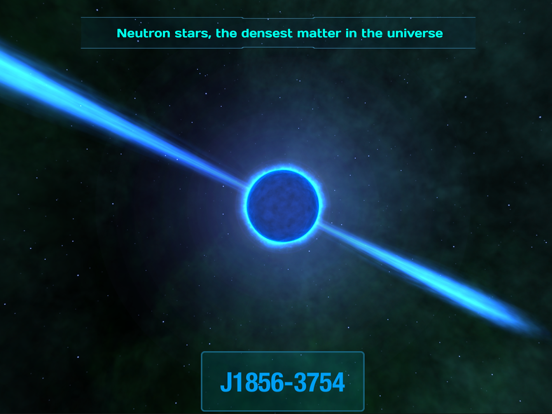62 votes - Education - First release: 2017-01-18T22:25:25Z
Screenshots
Description - 4+
Take a thrilling ride through space and visit strange new alien star systems such as multiple star systems (from binary to septenary), multiple planetary systems, circumbinary planets and disks, black holes, pulsars and magnetars. Ever wondered how far from Earth are the stars you see in the night sky? Or how far or close they are to each other? Now you can visualize those distances in 3D with a star map divided into 10 parsec sectors (cubes) or 32.62 light years, for an easier observation. Sector (0,0,0) is our home sector and Sol is the Solar System. Features ▶ Almost 4.5 milion stars, over 4000 exoplanets, 200 circumstellar disks, 38 black holes, 11 magnetars and around 2500 pulsars in the database ▶ Planets are updated daily from multiple sources, without needing to update the app ▶ Stars extracted from SIMBAD from multiple catalogs like the European Space Agency's Hipparcos mission, the Gliese catalogue and parts of the ASCC - All Sky Compiled Catalogue and the most recent GAIA catalogue ▶ 3D representations of all star systems and their orbits (green stars = unknown spectrum) ▶ black holes in binary systems, including the famous Cygnus X-1 and the Great Annihilator (the only binary system with a black hole and a pulsar) ▶ pulsars and pulsar planets - the first type of planet ever discovered beyond our solar system, orbiting the extremely dense core of a massive star that exploded as a supernova. Fewer than 1% of pulsars have been found to host planets. ▶ magnetars, a special and rare type of neutron star ▶ Search for stars, planets, disks, black holes, neutron stars and magnetars by a wide range of parameters: name, type, system type, constellation, catalog, star type (color) ▶ Detailed information for every stellar object Explore space and get a little closer to our wonderful universe with this awesome astronomy app! This interactive 3D map is excellent for teachers to use for instruction, and it is a great resource for students to explore the Milky Way galaxy and space as they learn more about the universe we live in. An internet connection is necessary to access the online stellar database as well as the wiki information. A subset of the database between sectors (-10,-10,-10) and (10,10,10) can be queried offline including planetary and orbit data.



















